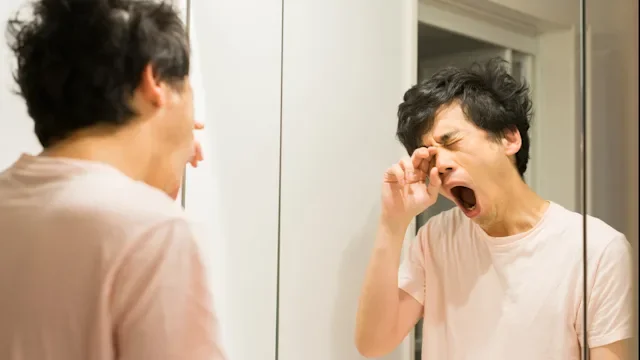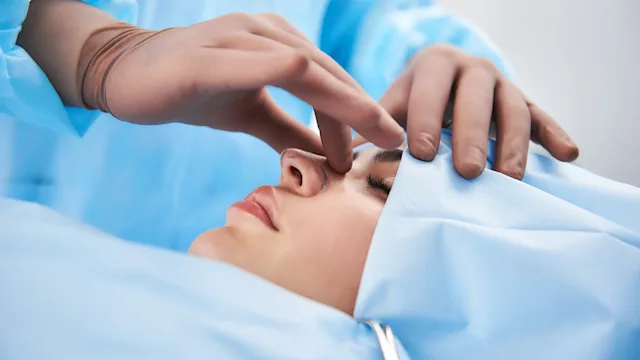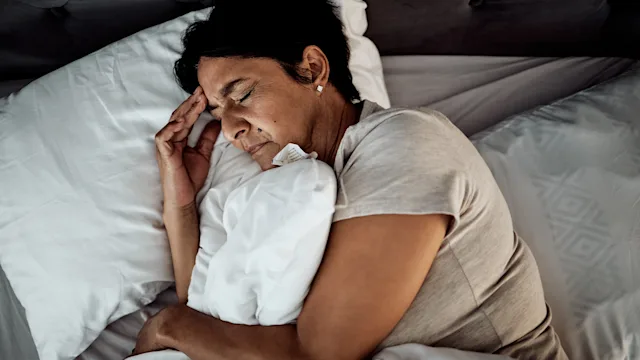Key takeaways:
You might be able to train your body to sleep less. But that doesn’t mean you should.
Your genes likely play a role in how much sleep you need.
Not sleeping enough can lead to a wide range of health problems such as obesity, heart disease, and high blood pressure.
Do you ever feel like there just aren’t enough hours in a day? You may cut into your sleep time so you can work and play more. After all, you can’t get anything done while laying in bed snoozing.
But is training yourself to run on less zzz’s such a good idea? Let’s take a look.
What is sleep and why do you need it?
Sleep is a state in which your mind transitions from a waking awareness to a period of rest. It’s divided into four stages known as a sleep cycle. Three of these stages include non-rapid eye movement or NREM and the fourth stage is called rapid eye movement or REM. It’s when most of your vivid dreams take place.
Search and compare options
Sleep is important for your physical and mental health. It allows your body to restore muscles and repair tissues. It also supports brain functions that allow you to create new memories, remain focused during the day, and react quickly to situations.
You already know what it’s like to not get enough sleep: You feel moody or sluggish. You may also struggle to concentrate at work or forget to complete routine tasks.
Those symptoms might seem like a small price to pay for extra wake time. But skimping on sleep can have much bigger consequences.
People who don’t get enough sleep are at higher risk for:
Obesity
Diabetes
Heart disease
High blood pressure
Depression and anxiety
Low libido (sex drive)
Weaker immune system
Alcohol misuse
Shorter life expectancy
So how much sleep is considered “enough?” The answer to that varies from person to person. In general, most adults need 7 to 9 hours of sleep.
Read more like this
Explore these related articles, suggested for readers like you.
So why do people want to sleep less?
We live in a “so much to do, so little time” culture where working long hours and maintaining crazy schedules is the norm. Many Americans believe sleep is a waste of time.
People in the U.S. would also rather put in more time at work than in bed. The American Academy of Sleep Medicine (AASM) found that those who slept less than 6 hours worked close to 2 extra hours on weekdays and weekends.
Claim: You can train your body to sleep less
AASM says 7 to 9 hours of nighttime sleep in adults promotes good health, productivity, and mental alertness during the day. That may seem like too much when you’re juggling a demanding job, family obligations, and a busy life in general.
So, what would it take to cut your snooze time by an hour or two?
What does the science say?
Let’s start by looking at genetics. There’s evidence that genes affect how much people need to sleep.
Scientists have found as many as 126 differences across genes that may be linked to sleep duration. These gene variations affect whether you tend to naturally sleep more or less. In this case, short sleep was considered anything less than 7 hours. More than 9 hours was considered long sleep.
That said, there may be a way to train your body to sleep less.
Jim Horne, a U.K.-based sleep expert, asked people who slept between 7 and 8.5 hours to go to bed later each night and wake up at the same time each morning. Participants pushed their bedtime by 1 hour a night the first week. For the following 3 weeks, they went to bed 1.5 hours later.
Horne found that they were still able to sleep well and be alert and productive during the day on 6 to 6.5 hours of sleep.
What do the experts say?
Just because you can train your body to sleep less doesn’t mean you should. Denise Rodriguez Esquivel, a clinical psychologist specializing in behavioral sleep medicine, says there are only a couple of reasons why someone should limit their sleep.
“Anyone trained in the military must learn to sleep less and still maintain job performance,” she says. “They need to know how to survive in life-or-death situations while sleep deprived.”
New parents must also learn to get by on little sleep. Fortunately, most newborns learn to sleep through the night after a few months.
“I can’t justify any other situation in which someone should deprive themselves of sleep,” says Rodriguez Esquivel.
Jerry Siegel, a UCLA professor of psychiatry and biobehavioral sciences, also says you shouldn’t do it.
“You can accustom yourself to reducing sleep time and delude yourself into thinking it doesn’t have an effect,'' he says. “But we know it does reduce alertness.”
So, can I train my body to sleep less?
Training your body to sleep less is possible, but experts don’t recommend it. Even if you don’t notice the effects, less sleep can lead to a range of physical and mental health problems. It can also lessen alertness, reaction times, and productivity.
It’s better to listen to your internal clock, which is likely guided by your genes.
“I’m always working with my patients to determine what’s the best sleep duration based on their biology for sleep,” says Rodriguez Esquivel. “If your body needs a certain amount of sleep, you should do your best to meet it.”
References
Abrams, A. (2017). How to train yourself to need less sleep. Time.
American Academy of Sleep Education. (2014). Many U.S. workers sleeping less to work more.
Better Sleep Council. (2017). Americans see sleep as a hero- and a villain.
Dashti, H. S., et al. (2019). Genome-wide association study identifies genetic loci for self-reported habitual sleep duration supported by accelerometer-derived estimates. Nature Communications.
Esquivel, D. R. (2022). The University of Arizona College of Medicine. [Interview].
Harvard Medical School. (2007). Why do we sleep, anyway?
National Institutes of Health. (2017). To sleep or not: Researchers explore complex genetic network behind sleep duration.
National Institutes of Neurological Disorders and Stroke. (2022). Brain basics: Understanding sleep.
Pellegrino, R., et al. (2014). A novel BHLHE41 variant is associated with short sleep and resistance to sleep deprivation in humans. Sleep.
Siegel, J. (2022). Semel Institute for Neuroscience and Human Behavior. [Interview].
Watson, N. F., et al. (2015). Recommended amount of sleep for a healthy adult: A joint consensus statement of the American Academy of Sleep Medicine and Sleep Research Society. Journal of Clinical Sleep Medicine.

Why trust our experts?



















